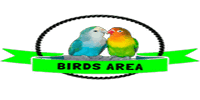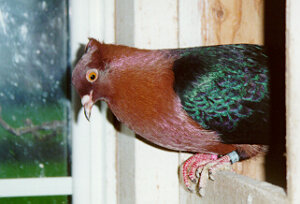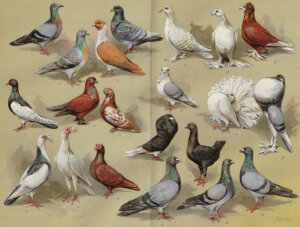Can Madagascar Pochards Eat Crustaceans?: Unveiling Their Diet
Yes, Madagascar Pochards can eat crustaceans. These rare ducks have varied diets and can consume small aquatic creatures.
Madagascar Pochards, one of the world’s rarest ducks, live in the wetlands of Madagascar. Their diet is diverse, ensuring they get enough nutrients. Besides plants and insects, they also enjoy small crustaceans. This variety helps them survive in their unique environment.
Understanding their eating habits is crucial for conservation efforts. Knowing what they eat can help protect their habitat and ensure their survival. In this blog, we will explore their diet more deeply and discuss the role of crustaceans in their nutrition. Let’s dive into the fascinating world of the Madagascar Pochard and their dietary preferences.

Credit: www.instagram.com
Introduction To Madagascar Pochards
The Madagascar Pochard is a rare duck species. Known as the world’s rarest duck, it is a captivating bird. This blog explores their unique characteristics and diet, including their ability to eat crustaceans. Let’s start with an introduction to these fascinating birds.
Habitat And Distribution
Madagascar Pochards inhabit freshwater lakes and marshes. These environments provide ample food sources. Historically, they lived across Madagascar. Now, they are found only in a few remote locations. Conservation efforts focus on these habitats to protect the species.
Physical Characteristics
Madagascar Pochards are small to medium-sized ducks. Males and females have distinct features. Males boast a rich chestnut-brown color. They also have striking white eyes. Females are duller with brown plumage. Both sexes have blue-gray bills and legs. Their compact body helps them dive and forage underwater.

Credit: en.wikipedia.org
Dietary Preferences
Madagascar Pochards have unique dietary preferences that ensure their survival. Understanding their diet helps in their conservation efforts. Knowing what they eat and what they need nutritionally is crucial.
Typical Foods Consumed
Madagascar Pochards primarily eat aquatic insects. They dive underwater to catch these insects. They also consume small fish and amphibians. Seeds and plant matter are part of their diet too. The variety ensures they get the nutrients they need. Crustaceans can be part of their diet. Crustaceans offer essential proteins and minerals.
Nutritional Requirements
Madagascar Pochards need a balanced diet. Proteins are crucial for their growth. Insects and small fish provide these proteins. They also need vitamins and minerals. Plant matter and seeds help in fulfilling these needs. Crustaceans are rich in proteins and minerals. Including them in their diet is beneficial. A varied diet ensures their health and survival.
Crustaceans In The Diet
The Madagascar pochard is a rare diving duck species. It has a diverse diet in its natural habitat. One interesting aspect of their diet is crustaceans. Crustaceans provide essential nutrients that help these ducks thrive. Understanding what types of crustaceans they eat and the nutritional benefits can shed light on their feeding habits.
Types Of Crustaceans Eaten
Madagascar pochards consume various crustaceans. They typically eat small shrimp and crayfish. These ducks also feed on tiny crabs found in their habitat. The diversity in their diet helps them get different nutrients.
Nutritional Benefits Of Crustaceans
Crustaceans are rich in protein. Protein is vital for the growth and repair of tissues. These small creatures also provide essential fats. Fats help the ducks maintain energy and body heat.
Another benefit is the presence of minerals. Crustaceans have calcium and phosphorus. These minerals are crucial for strong bones and healthy feathers. By eating crustaceans, Madagascar pochards get a balanced diet.

Credit: www.pennlive.com
Research And Observations
Madagascar Pochards are a critically endangered species. Scientists are studying their diet to help conserve them. One focus is on whether these ducks eat crustaceans. Observations and studies provide insights.
Field Studies And Findings
Researchers have spent many hours watching these ducks in their natural habitat. They observed the ducks diving and foraging. The aim was to see what they ate. The findings showed that Madagascar Pochards do eat crustaceans. Crustaceans form a part of their diet. This includes small shrimp and other similar creatures.
Scientists also examined the stomach contents of some ducks. This confirmed the presence of crustaceans. This field study was crucial. It provided direct evidence of their diet.
Implications For Conservation
Knowing that Madagascar Pochards eat crustaceans helps conservationists. It means protecting their food sources is vital. Wetlands need to be rich in crustaceans. This will support the duck population. Conservation plans can now include this important detail.
Efforts to restore wetlands should focus on making them healthy for crustaceans. This will indirectly help the Madagascar Pochards. The diet study highlights a critical link in their survival. It is a step forward in the conservation of this rare species.
Frequently Asked Questions
Can Madagascar Pochards Consume Crustaceans?
Yes, Madagascar Pochards can eat crustaceans. These birds primarily feed on aquatic invertebrates and small fish. Crustaceans provide essential nutrients.
What Do Madagascar Pochards Eat?
Madagascar Pochards eat a variety of aquatic invertebrates and small fish. Their diet includes crustaceans, insects, and larvae.
Are Crustaceans Part Of Madagascar Pochards’ Diet?
Yes, crustaceans are part of their diet. Madagascar Pochards consume them for essential nutrients and energy.
How Do Madagascar Pochards Find Their Food?
Madagascar Pochards dive and forage underwater to find their food. They search for aquatic invertebrates, small fish, and crustaceans.
Conclusion
Madagascar Pochards can indeed eat crustaceans. These birds have diverse diets. They thrive on various aquatic foods. Crustaceans provide essential nutrients. This helps in their growth and survival. Observing their eating habits gives insights. It aids in conservation efforts. Supporting these ducks ensures their future.
Understanding their diet is crucial. It helps maintain their population. Protecting their habitat is important. Every effort counts.
Hello Dear, I'm Poli Kolymnia, owner of many birds (including budgies).
With a deep passion for these feathered companions, I'm here to share my expertise and extensive knowledge on birds care.
My articles cover essential topics like diet, housing, care, and health, providing practical tips to help you create a happy and thriving environment for your birds.




